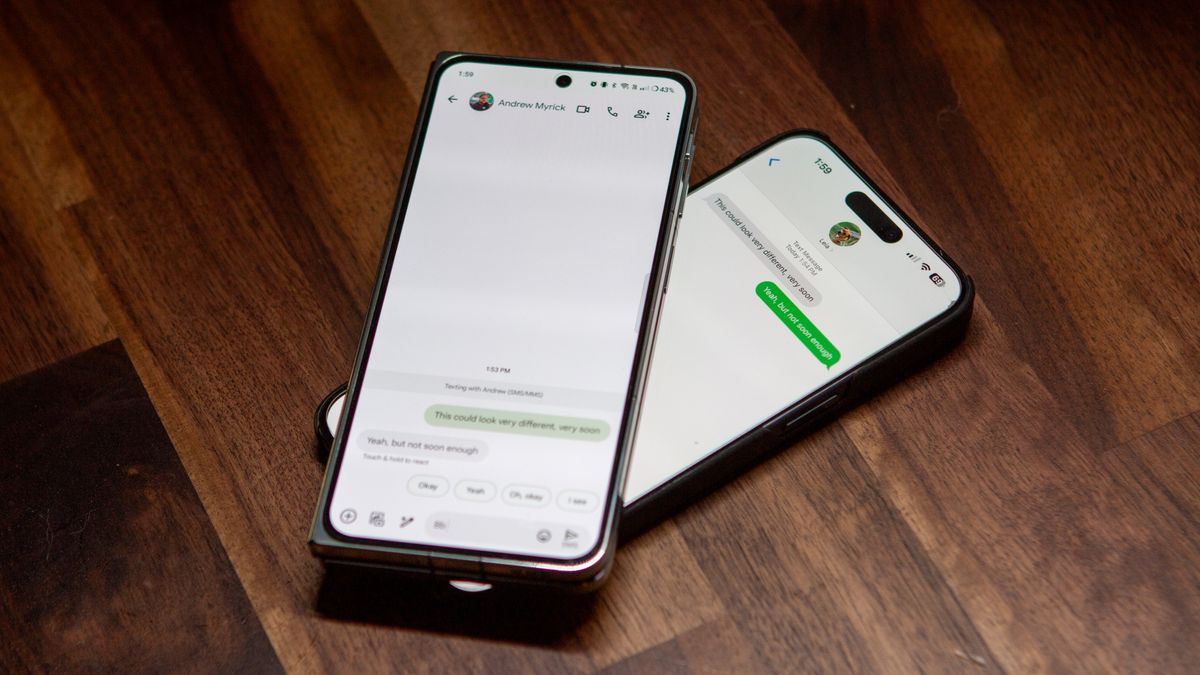For several years Google has been very vocal about Apple supporting RCS in its iMessage platform. Now that it’s happened, it seems like Google got what it was asking for. Spoiler: it didn’t, but it did stop the barrage of messaging about why it was needed.
Two very important things come into play here. First, RCS on the iPhone is not end-to-end encrypted because that type of encryption is not part of the RCS standards. Second, Google chose to add the encryption layer itself, but Apple did not, nor did it choose to work with Google to enable it.
Oh, there is one more important thing: Apple didn’t add RCS support to appease Google or as a show of good faith for its customers. It was more likely because China demanded it happen.
I know plenty of people simply don’t care about RCS at all. You may use WhatsApp or never text with someone on a different smartphone platform, so it makes no difference to you that Apple supports it. That’s great, but it affects a lot of other people, which is why so much virtual ink has been used to talk about it.
If you’re not sure about what RCS is, think of it as WhatsApp-style text messaging. You can send higher resolution photos and videos, see when the other person has read your message or when they are typing, and include media like stickers without converting it to an older style MMS message.
If you were texting between two iPhones or two Android phones, it’s what you’re used to. If one person has an Android phone and the other has an iPhone, none of this could happen, and you probably noticed that, too. Now it can, thanks to iOS 18’s support for RCS in iMessage.
One of the big reasons so many people are talking about this is because Google made a big deal about Apple not supporting it. Besides the richer user experience, RCS (the way Google does it) supports end-to-end encryption, making sure only you can read a message meant for you. Google said Apple was making messaging unsafe because it would not support this feature.
With the RCS announcement from Apple, Google stopped telling us all why Apple was “bad” for not supporting it. However, Apple’s current implementation of RCS does not support end-to-end encryption. A message between an Android phone and an iPhone is encrypted while it’s flying across the internet (like almost all other internet traffic) but it isn’t as secure as Google claimed it must be.
Encryption of this sort isn’t part of RCS. It’s likely to be added in the future, but even then, Apple won’t support it without updating its implementation. The only reason it’s supported on Android is that Google added it to the standards-based RCS profile itself.
Apple could have done the same, or it could have worked with Google to add it to iMessage, but it didn’t. There is no incentive to add it and even less to work with Google because proprietary messaging is an important feature that is used to lock users into a platform by both Apple and Google.
In fact, Apple didn’t add RCS support because of Google’s efforts. As a company, it would be better if you had grandma buy an iPhone versus supporting something it doesn’t think adds value to iOS. I’m not going to buy into the conspiracy theory that Apple purposefully chose to support an outdated version of RCS to thwart Google, but I do think Apple simply didn’t care what Google had to say.
Apple added RCS support because 20% of its sales are in China, and China will soon require all phones with 5G capability to support the RCS standard if they are to gain regulatory approval. Apple can not afford to lose 20% of its market and will always do what China demands.
This leaves me with one question: why has Google stopped demanding secure cross-platform messaging from Apple? It’s not here, and Apple has made no effort to provide it.
I’m not saying Apple should have or that you should worry about it. There are plenty of end-to-end encrypted messaging platforms out there if that’s something you care about. Most people already use one of them, especially outside of North America.
Google and Apple will always find ways to dig at each other and try to convince you that it is the best. Maybe one is better than the other, and maybe one day, something even better will come along. In the meantime, don’t fall into the trap of believing everything one of them has to say.

